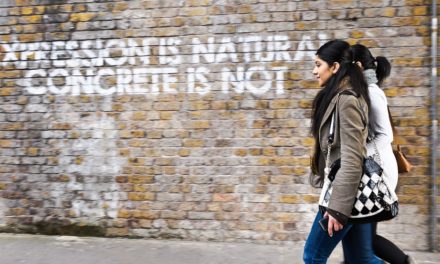How many times each day do you say, “How are you?” and how many times do you actually mean it?
“How are you?” is the most useless phrase in the English lexicon. Its expected counterpart, “Fine, thanks, and you?” is no better. Ostensibly, it shows that in some way, someone cares about your well-being, but in reality it’s merely a polite gesture. Like all other polite conventions, it’s a meaningless, overused conversation starter. Our excessive use of such conventions and our inability to say what we really mean without social repercussions has forced superficiality into our language.
Like training a puppy to sit, Western culture, among others, conditions us to ask back how a person is doing even though the response will be “Fine, thanks.” A question is meaningless if it is just for the sake of asking a question — you are ultimately losing an opportunity to engage in conversation.
Thus, using “How are you?” as a conversation starter can sometimes be misleading. If someone tries to answer honestly and is met with your impatience to move on to another topic, your disinterest conveys that your question merely expressed a self-centered need to sound like you care.
Unfortunately, this practice is so deeply rooted and wired into our brains that we do not think before asking. We ask even when we know and even when we don’t care.
To put this phenomenon in the recent context of the pandemic — no one is fully “fine.” We are all struggling with something. Our social, economic and political lives are shrouded in uncertainty, yet we must nevertheless project joy when someone asks us how we are doing and say the socially foolproof response: “I’m good! You?” “How are you” is a pleasantry that either makes “the conversation very gloomy, very fast or … [forces] someone to lie straight to your face,” said former staff writer at The Atlantic Ashley Fetters. The most disquieting thing, though, is that you usually know they are lying.
The effect of formalities and social politeness on human connection has been widely researched. Developed by two researchers at Stanford University (Calif.), politeness theory divides politeness into three pseudo-categories: positive politeness, negative politeness and off-record politeness. In positive politeness, the speaker addresses the hearer’s positive needs to be desired, liked and appreciated. In essence, the speaker tailors their speech to the hearer’s interests to connect with them and evoke empathy and compassion, honesty notwithstanding. White lies — “How are you?” among them — are strong examples. We often use white lies to make others feel better. Sometimes, convention forces us to be nice for the sake of being nice.
But this sort of unnatural politeness is so prevalent as to verge on the ritualistic. Linguist Dániel Zoltan Kádár defines rituals as performative actions intended to physically reenact valuable aspects of our relationships and maintain social structure. Polite conventions, then, are rituals; they support the social fabric through the linguistic reinforcement of human connection, politeness and kindness. At the same time, these conventions act as a performance that flows off the tongue so naturally that we often forget what they really mean. We produce these greetings like painfully well-rehearsed speeches. How do we respond when someone says, “Not good,” or “Bad”? Depending on the relationship we have with that person, it could subject both parties to severe discomfort.
As historian Adam Garfinkle argues, polite conventions protect us from invasions of intimacy. Even as they overcome the barrier of initial strangeness, they remind us that those boundaries still exist. With the advent of the digital age, face-to-face social interactions are changing: our ability to connect with people on a deeper, more personal level continues to decrease. To compensate, we rely on fake politeness. In Garfinkle’s words, “we will norm and drill [politeness], too, with the result, most of the time, that efforts to be polite come across as insincere, trivialized routinizations that ooze bad faith.”
I’m not saying every single person with whom we come across trivializes and impersonalizes conversational maxims — not everyone is heartless and superficial. Perhaps they genuinely care about how you are doing. If that’s the case, show them you listened to something they said and ask about it. Asking follow up questions or personalizing the question generally makes you a more likable person, shows that you care about what they are saying and gives you a chance to learn something new about the person.
Sincerity is elusive. It’s a rare commodity in a world where most people do not contact you until they need something. But we can be better. While dismantling “How are you?” and its compatriots would literally require upending our entire social fabric, simply reflecting on their use could add some meaning to them the next time they hurtle out of our mouths. Recognition of this phenomenon not only improves self-awareness but also heightens our compassion and empathy, something we all sorely lack.
Do not ask a question to check off the “I asked a question today” box — it is not a completable task delegated to you by our social norms. Check yourself. Do you really want to know how someone is doing, or are you just asking out of moral responsibility?
Sophia Ling (24C) is from Carmel, Indiana.
Sophia Ling (she/her) (24C) is from Carmel, Indiana and double majoring in Political Science and Sociology. She wrote for the Current in Carmel. She also loves playing guitar and piano, cooking and swimming. In her free time, she learns new card tricks and practices typing faster.




